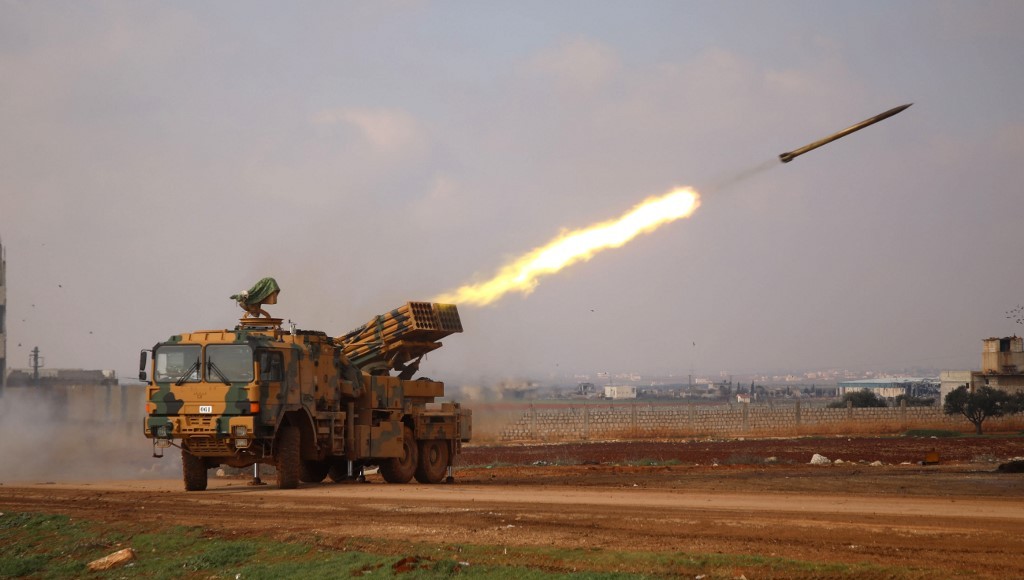Türkmen Terzi
Turkish President Recep Tayyip Erdoğan shocked the world recently by describing Sweden and Finland as “incubators” for terrorist groups. Erdoğan has opposed the NATO membership of these Nordic states, accusing them of harboring members of the Kurdistan Workers’ Party (PKK), an armed group recognized by Turkey as well as the EU and the United States as a terrorist organization. On the other hand, Turkey’s main opposition leader Kemal Kılıçdaroğlu made an uninvited visit to the headquarters of SADAT, the international defense consultancy, known as Erdoğan’s shadow army. Kılıçdaroğlu called SADAT “a paramilitary organization that trains terrorists.”
SADAT’s founder, retired general Adnan Tanrıverdi, had to resign from his position as Erdoğan’s adviser in January 2020 after he disclosed that his private security company was working toward preparing the world for the arrival of “the Mahdi,” a messianic figure some Muslims believe will redeem mankind before the end of time. Turkish media reported on SADAT’s training camps in several Turkish cities. Turkish fugitive mob boss Sedat Peker claimed that SADAT was training Al-Nusra Front fighters and had armed the group by diverting Peker’s aid convoy heading to the Syrian Turkmens, Arab News reported.
There have been several reports of SADAT-trained Syrian jihadists fighting in Libya against General Khalifa Haftar’s Libyan National Army (LNA) to defend former prime minister Fayez al-Sarraj‘s Tripoli-based Government of National Accord (GNA). The Syrian fighters who were recruited by the Syrian National Army (SNA), in cooperation with SADAT, fought for Azerbaijan against Armenian forces during the Nagorno-Karabakh war.
Erdoğan last week announced plans for a military operation in northeastern Syria’s Tal Rifaat and Manbij provinces in a bid to eliminate the threat from the People’s Defense Units (YPG) in a region that borders Turkey. The Turkish leader has, however, never during his 20-year-long rule targeted any senior PKK leaders. Erdoğan has in the past recognized jailed PKK leader Abdullah Öcalan as a representative of the Kurds while trying to close down Turkey’s legitimate Kurdish party in parliament, the Peoples’ Democratic Party (HDP), and arresting its leaders. Erdoğan’s main motivation is to target neither the PKK nor its Syrian branch, the YPG, but to instead train jihadists, deploying them to as many parts of the world as possible with an aim to establishing his own Islamic caliphate.
Turkey recognizes the YPG as the Syrian branch of the PKK, the armed group responsible for the death of more than 40,000 Turkish citizens. On the other hand, Erdoğan himself legitimizes terrorism by backing jihadist groups carrying out attacks far more deadly than those of the PKK in many parts of the world.
The Syrian Democratic Forces (SDF) led by the Kurdish YPG have been the main allies of US forces on the ground in the battle against the Islamic State in Iraq and the Levant (ISIL) since 2014. Major European states France and the United Kingdom have also provided logistical and military support to the YPG. The group defended the important Kurdish town of Kobani against an ISIL siege in 2014. The Kobani victory encouraged YPG fighters to establish a Kurdish autonomous region in northern Syria, and the group had already become the key powerbroker in northeastern Syria. Erdoğan targeted Kurds in the region a day after former US President Donald Trump decided to withdraw US troops from Syria in October 2019. Turkish forces killed over 200 Kurdish militants, and more than 60,000 Kurds fled their homes during Turkey’s military offensive. Turkey has been conducting military operations in northern Iraq’s Qandil Mountains, where the PKK’s headquarters are located, since the 1990s but has never managed to kill a single senior PKK leader there. It seems unlikely that Erdoğan will succeed in defeating the Kurdish autonomous establishment in Syria.
Erdoğan’s ruling Justice and Development Party (AKP) did not collaborate with Kurdish forces in Syria against ISIL but is currently supporting rebel groups such as the National Liberation Front (NLF) and Al-Jabhat al-Wataniya il-Tahrir as well as the SNA, al-Jaysh al-Watani and Hayat Tahrir al-Sham (HTS), the group that controls southern Idlib. Turkey has listed the HTS as a terrorist organization, but the Turkish army maintains around 80 military and observation posts around this area preventing Assad’s forces from targeting the HTC.
If Erdoğan is serious about the Kurdish threat at Turkey’s border, he will support Syria’s territorial integrity and collaborate with Syrian President Bashar al-Assad to end the autonomous Kurdish region within Syria. Instead, Erdoğan has been a staunch enemy of the Assad regime since the outbreak of the Syrian civil war in 2011. The irony is that prior to the war, Erdoğan’s family built a close relationship with the Assad family, who would vacation in Turkey’s popular holiday destination of Bodrum on the Aegean coast. This was Assad’s first-ever holiday abroad together with his family. But Erdoğan’s AKP has become an indirect supporter of the existence of the Kurdish autonomous region in Syria as they supported the so-called Sunni jihadists against the Alawite Assad regime, and Kurdish armed groups took advantage of a power vacuum in Assad’s Syria.
Erdoğan will not really target US-allied Kurdish groups in Syria or in Iraq but will take advantage of a chaotic situation in Syria, Libya, Iraq and many other places including Kashmir to maintain his power through jihadists.

